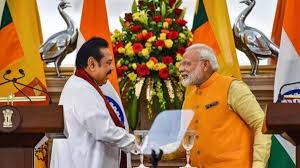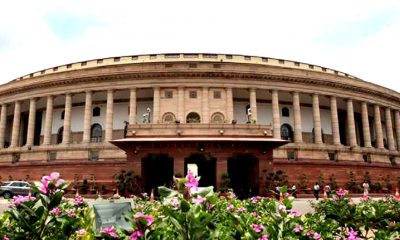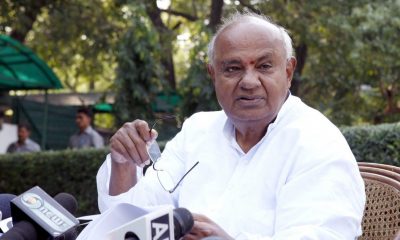World
Egypt vote in second phase of parliamentary polls

Cairo: Egyptians on Sunday began voting in the second phase of the country’s first parliamentary elections since former Islamist President Mohammed Morsi was ousted in 2013.
Polling stations opened in 13 of Egypt’s 27 governorates, as per reported.
Voters in the remaining 14 governorates had cast their votes in October, with the total turnout reaching 26.5 percent, according to the High Elections Committee (HEC).
A total of 55,606,578 are eligible to vote in the elections – 27,402,353 were eligible to vote during the first stage and 28,204,225 are eligible in the second phase, which will continue unil Monday.
A total of 282 parliamentary seats will be up for grabbing in the second stage, with 222 seats for independent candidates and 60 seats allocated to party-based lists.
The 222 independents will be elected from 102 constituencies, and the 60 party-based members will be elected in two separate constituencies, one which holds 45 seats and the other 15.
Egyptian expats began voting on Saturday in diplomatic missions around the world.
Egypt’s parliament – the House of Representatives – will comprise 596 members, 448 elected as independents and 120 from party-based lists. The remaining 28 seats will be filled by presidential appointments.
The last parliament, which was elected in late 2011, months after the ouster of long-time leader Hosni Mubarak, was dissolved in June 2012 due to the unconstitutionality of an election law.
World
Lockdowns in China Force Urban Communities to Defy Censorship and Vent Frustration Online

Shanghai’s rich middle class is leading a wave of online dissent over the strict and prolonged lockdowns imposed in various parts of the country. Chinese internet censorship is struggling as patience is wearing thin in many urban centers, coming up with creative forms of online protests.
Social Media Posts Revealing Lockdown Tension in Shanghai
Drawn-out lockdowns are nothing new in China as authorities insist with the nation’s zero-Covid policy since the start of the pandemic. Currently over This time around, however, metropolitan areas like Shanghai are increasingly difficult to keep quiet, given that its more than 25 million residents have seen weeks of total isolation along with food shortages and many other service interruptions.
Dozens of towns and reportedly over 300 million Chinese citizens have been affected by lockdowns of different severity. As expected, urban netizens have been most outspoken over their difficulties by finding creative ways to get around state censorship and bans placed on topics, news comments and spontaneous campaigns.
Shanghai residents have been using mobile proxies and hijacking seemingly unrelated hashtags to talk about healthcare issues, delivery failures and the overall severity of their situation. The “positive energy” that the Chinese government wants to transmit during the recent prolonged series of lockdowns does not come naturally to those counting food supplies and online censors are working hard to filter words, trending topics and undesired social media sharing.
WeChat groups and message threads are under constant monitoring. Posts questioning the zero-Covid approach have been quickly deleted, including by leading Chinese health experts like Dr. Zhong Nanshan. Video footage is soon censored and protests and investigations are quickly made to disappear.
Where this has not worked, officials have exposed banners with warnings and outright threats like “watch your own mouth or face punishment”, while drones have been patrolling the city skies. Yet, if anything, this has led to further tensions and unspoken confrontation with Shanghai’s educated and affluent middle class.
Creative Online Solutions Harnessing Civic Energy
Announcements by Chinese social media that they would be publishing the IP addresses of users who “spread rumors” have not helped either. Tech industry research has shown that much of Asia’s tech-savvy population has a habit of using mobile proxies and other privacy tools, quickly finding workarounds to browse the internet freely and talk to the world about the hottest topics.
The sheer volume of forbidden posts is already a challenge for the very censorship system, experts explain. Unable to track all trending hashtags, state workers overlook topics that speak about the US, Ukraine or other popular news. Linking human rights elsewhere to their situation, Chinese online dissidents establish their informal channels and “hijack” the conversation to share personal or publicly relevant information about the Covid suppression in their town.
Sarcastic and satirical posts still dominate. Others hope to evade the censors by replacing words from famous poems or the national anthem. One thing is certain – social media, when harnessed with the right creativity, has proven its ability to mount pressure on the government in even some of the most strictly controlled tech environments like China.





















